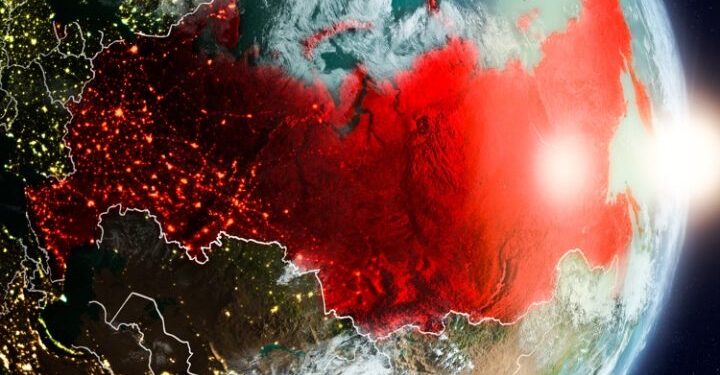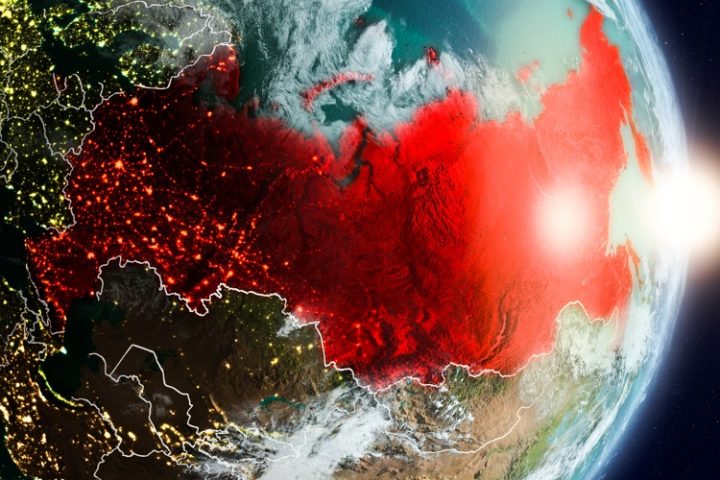
Before going all in and betting the house on a poker hand, in the belief your opponent is bluffing, you’d better hope your judgment is sound. You should know that it’s not warped by self-delusion, by wishful thinking, or projection. You’d also better make sure the cost-benefit analysis justifies the risk, that you’re not betting your house against an illusion.
Of course, lose the hand and you still live to fight another day. This is not the case with our involvement in the Russia-Ukraine war and our assumption that Vladimir Putin is all talk, no action. And now as we inch closer to nuclear war, a foreign policy analyst becomes one of the latest to warn with regard to Moscow’s red-line threats, “Russia is not bluffing.”
Writing at The National Interest, international affairs expert Benjamin Giltner laments that as the Ukraine conflict grinds on into its third year, all parties involved seem hell-bent on escalation. “In his annual ‘State of the Nation’ address,” Giltner says, “President Vladimir Putin warned NATO nations that they ‘must, in the end, understand all this truly threatens a conflict with the use of nuclear weapons, and therefore the destruction of civilization,’ if they continue to arm Ukraine and consider sending troops.”
Telling us not to worry, states Giltner, are people such as retired U.S. Army General Ben Hodges, ex-Congressman Adam Kinzinger (a possible sociopath), and NATO Secretary-General Jens Stoltenberg. Are these the master poker players we should let wager the house of civilization?
Do note that our Ukraine involvement is unprecedented. The USSR sent 200,000 troops into Hungary in 1956 and rolled tanks into Czechoslovakia in ’68; in neither case did we send billions in arms to the Hungarians and Czechs, provide logistical support, allow them to strike Soviet territory with NATO weapons, and consider sending Western troops to fight on the ground.
If you’d asked Western leaders at the time, “Why not?” they’d have sized you up for a straitjacket. Sure, the Soviets were evil, tyrannical, and were invading what rightly should’ve been sovereign nations. But stomping around in the backyard of, and essentially waging a hot war against, another country that could destroy the world with nukes was a red line we’d never cross.
Until now.
Of course, we’re reassured that Putin is “All hat, no cattle,” but Giltner calls this folly. “As the famed military and nuclear strategist Bernard Brodie explained, countries … do not usually bluff when they make threats,” he writes. Just consider history.
When Admiral Isoroku Yamamoto devised the Pearl Harbor attack, he believed the assault “would destroy America’s morale, preventing America from countering Japan’s expansion of power throughout the Pacific,” Giltner explains. “Ultimately, Japanese military thinkers sought to use Pearl Harbor as a way to shock the United States into a negotiated settlement with Japan.” Instead, it drew us into WWII — the last thing the Japanese wanted.
Then there was the Korean War. “In 1950, General Douglas MacArthur, the leader of the United Nations Command, pushed American-led forces up the Korean peninsula in a stunning counterattack against the North Korean military,” Giltner writes; MacArthur intended to achieve total victory by driving up the peninsula to the geographic Korea/China border, the Yalu River — despite Beijing’s warnings about such an action. And while MacArthur was certain China wouldn’t enter the conflict, this “assessment proved wrong, with Chinese forces pouring into Korea in October 1950, marking one of the turning points in the Korean War,” Giltner reminds us.
Finally there was the Cuban Missile Crisis in 1962. While then-President John F. Kennedy warned the USSR about aggressively entering our backyard, Soviet Premier Nikita Khrushchev believed Kennedy was a weak leader who was bluffing and sent medium-range nuclear missiles to Cuba. The result was a tense 13-day period during which Kennedy instituted a naval blockade of the island and nuclear war seemed nigh.
Khrushchev ultimately backed down. What, however, if he’d instead escalated and sent his own fleet to confront our navy off Cuba? This is analogous to, as we hear talk of, putting NATO troops in Ukraine.
Making it worse and harking back to my 1956 and ’68 examples, Ukraine means more to Russia than Hungary and Czechoslovakia ever did. In fact, it very much is to Moscow what Taiwan is to China.
That is, just as Beijing considers Taiwan part of China, so does the Russian leadership view Ukraine as part of Russia. (In fact, it was so for centuries. Moreover, Moscow relies on a pipeline system flowing through Ukraine to facilitate its main industry: energy production.) Another similarity is that our government is concerned about Beijing invading Taiwan. Now consider:
What if we proposed accepting Taiwan into NATO (I know its focus is the “North Atlantic,” but I’m making a point)?
Would we be surprised if this sparked Chinese military action?
Well, that’s precisely what happened with Ukraine. As geopolitical analyst Brandon J. Weichert put it recently, the current tensions and WWIII fears are all because globalists had “for years suborned the expansion of a NATO alliance that was increasingly viewed as a direct threat to the Russian Federation.” In fact, consider the history:
In 1990, then-Secretary of State James Baker promised reformist Soviet leader Mikhail Gorbachev that NATO would expand “not one inch eastward.” As a result, the USSR pulled the Red Army back within traditional Russian borders and allowed its empire to dissolve into 15 countries. The result?
NATO more than doubled its member nations, putting a basket full of them on Russia’s borders, including, recently, Finland.
Despite this, Putin continued making overtures toward the U.S. into the 2000s, as explained here. He was rebuffed every time.
What’s more, the globalists then crossed another red line: They began talking about taking Russia’s “Taiwan,” the Ukraine, into NATO.
Is the current conflict any surprise?
Perhaps our foreign policy geniuses thought Putin was bluffing with his Ukraine/NATO red-line warnings. Perhaps they didn’t care. But here we are — being told he’s bluffing again.
But there’s a ’62 Missile Crisis lesson here. As Giltner points out, while the Soviet missiles didn’t alter the superpowers’ nuclear balance at the time, “they threatened the credibility of America’s resolve.” Likewise, what do you suppose Moscow thinks that backing down in Ukraine would do to the credibility of Russia’s resolve?
You can’t stomp around in another great power’s backyard like a Jurassic Park T-Rex because that nation cannot retreat at its own doorstep. This is half the reason why, Serbian President Aleksandar Vučić warned recently, we face “a real disaster.” The “West cannot afford to lose in Ukraine because it will further weaken the geopolitical situation of the United States and NATO,” The Balkan quoted him as saying last month. “On the other side, ‘if Putin loses the war, he will personally lose everything…. Everything is at stake for both sides.’”
But is this really true? Prior to Putin’s invasion, our mainstream media had called Ukraine the most corrupt country in Europe. So is nuclear war really an acceptable risk in the name of controlling which kleptocrat governs the place?
Shop For Night Vision | See more…
Shop For Survival Gear | See more…
-
Sale!

Japanese 6 inch Double Edged Hand Pull Saw
Original price was: $19.99.$9.99Current price is: $9.99. Add to cart -
Sale!

Portable Mini Water Filter Straw Survival Water Purifier
Original price was: $29.99.$14.99Current price is: $14.99. Add to cart -
Sale!

Tactical Camo Nylon Body Armor Hunting Vest With Pouch
Original price was: $49.99.$39.99Current price is: $39.99. Select options This product has multiple variants. The options may be chosen on the product page




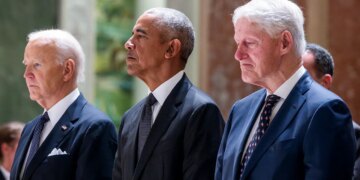



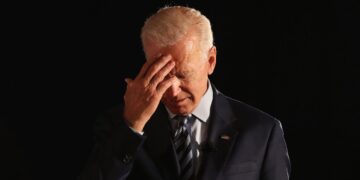
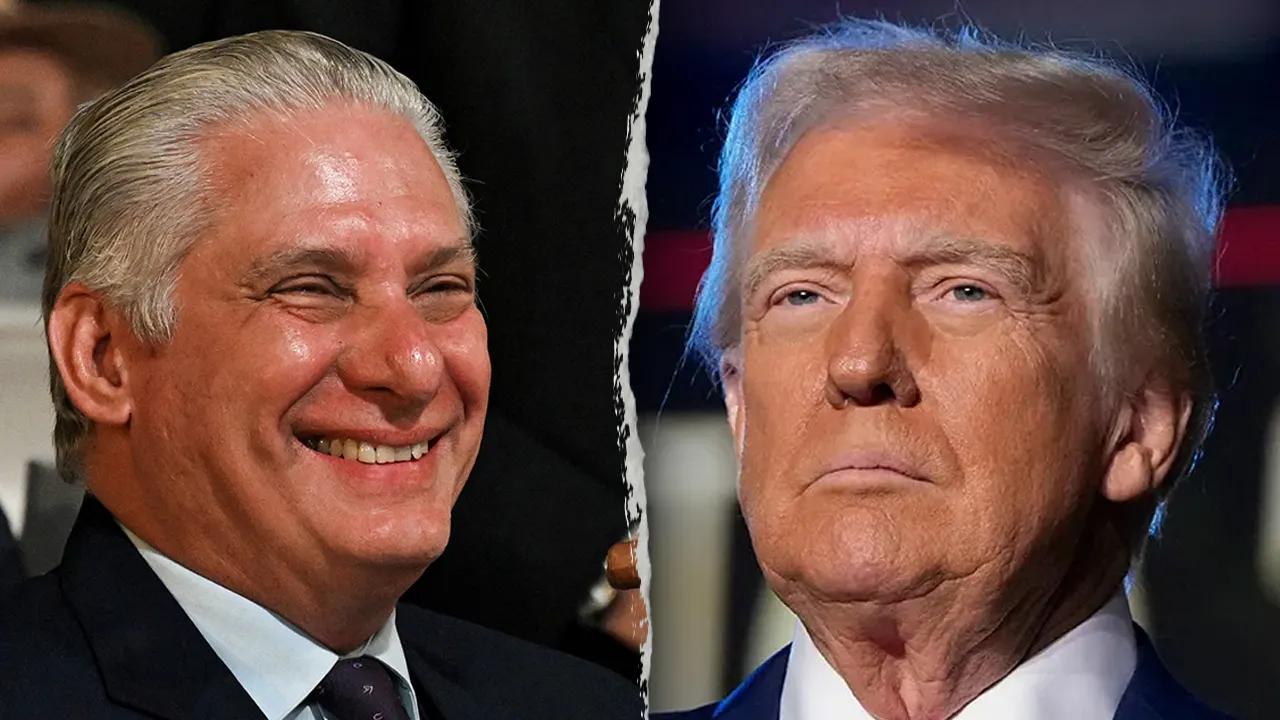























 Reaction & Commentary
Reaction & Commentary









